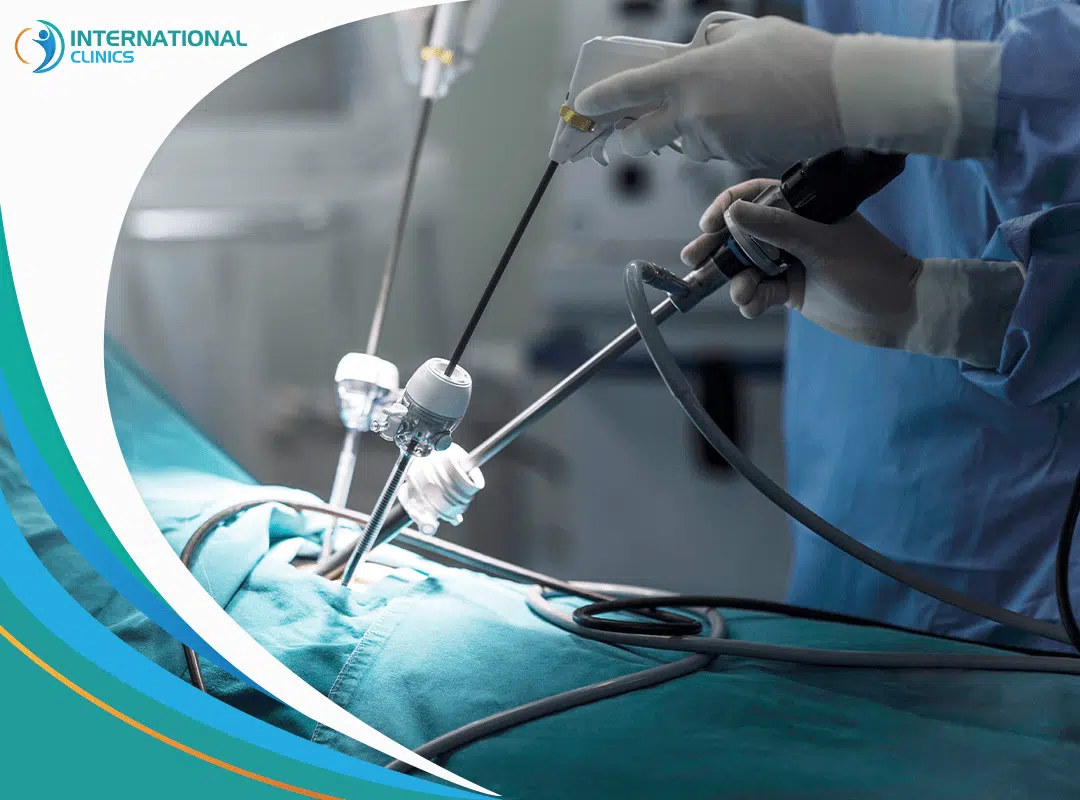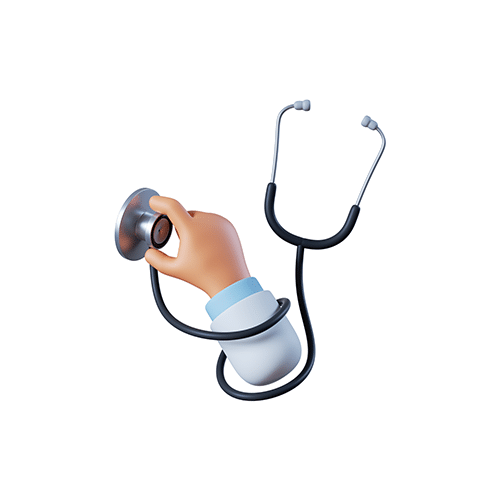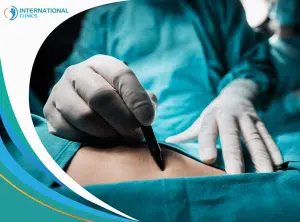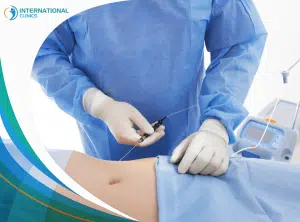Gastric sleeve surgery, also known as sleeve gastrectomy, is a popular bariatric procedure designed to aid individuals struggling with obesity in achieving long-term weight loss and improved health.
While the surgery itself is a significant step towards a healthier future, understanding the recovery process is crucial for successful outcomes.
Once the surgery is complete, the road to recovery begins. Following post-operative instructions is crucial for a successful recovery.
It’s important to note that gastric sleeve in Turkey not only brings physical changes but also requires adjustments in lifestyle habits.
The timeline of gastric sleeve surgery recovery varies from person to person. In this article, we will delve into the gastric sleeve surgery recovery time and discuss what patients can expect during their post-operative journey.

Gastric Sleeve Recovery Time
Every individual’s recovery experience may vary slightly based on factors such as overall health condition before surgery and adherence to post-operative guidelines. Here’s what to expect during the recovery period:
Day 1:
- Hospital Stay: After the gastric sleeve surgery, you will be closely monitored in the recovery room. The length of your hospital stay may vary depending on your overall health and the surgeon’s recommendations. Typically, patients can expect to stay in the hospital for one to three days to ensure a smooth recovery.
- Pain Management: Pain and discomfort are common after the surgery. The medical team will closely monitor your vital signs, administer pain medication as needed, and provide guidance on post-operative care.
- Starting a Liquid Diet: During this time, you will begin with a liquid diet to allow your stomach to heal properly. Clear liquids such as water, broth, sugar-free gelatin, and herbal tea are typically allowed during this stage. It is essential to avoid carbonated beverages and sugary drinks that can cause discomfort or hinder healing.
Week 1:
- Transitioning from Liquids to Pureed Foods: Around the end of the first week, you will begin transitioning from a liquid diet to pureed foods. Pureed foods are easier for your stomach to digest while still providing essential nutrients. Examples of suitable foods include mashed vegetables, soft fruits, yogurt.
- Monitoring Incision Healing: It is crucial to keep a close eye on the healing process of your incisions during this time. Your surgeon will provide instructions on how to care for them properly and may recommend using antibiotic ointment or dressings. Regularly inspecting the incisions for signs of infection or abnormal healing is essential for minimizing any potential complications.
Week 2:
- Gradual Introduction of Soft Foods: By the second week post-surgery, you can start introducing soft foods into your diet. These foods should be easy to chew and swallow without causing discomfort or irritation. Examples include cooked vegetables (e.g., steamed carrots or green beans), soft fruits (e.g., bananas or avocados), tender meats (e.g., ground turkey or fish), scrambled eggs, and cottage cheese.
- Continuing Progress Monitoring: Throughout this phase of recovery, it remains crucial to monitor your progress closely. Keep track of any changes in your weight, energy levels, and overall well-being. If you notice any unexpected symptoms or concerns, do not hesitate to reach out to your healthcare team for guidance and support.
Weeks 3-4:
- Advancing to Solid Foods in Small Portions: During weeks three and four of your recovery timeline, you will gradually advance to consuming solid foods in small portions. It is essential to focus on incorporating protein-rich foods into your diet as they aid in the healing process and help maintain muscle mass.
- Focusing on Protein Intake: Some excellent sources of protein include lean meats, poultry, fish, tofu, beans, and dairy products. Aim to consume small meals throughout the day rather than large portions in one sitting. This approach allows for better digestion while preventing discomfort or stretching of the stomach pouch created during surgery.
Weeks 5-6:
- Increasing Physical Activity: As you enter weeks five and six of your recovery journey, it is crucial to start increasing your physical activity gradually. Engaging in light exercises such as walking can help improve circulation, boost energy levels, and promote overall well-being.
- Adjusting Portion Sizes as per Medical Advice: Consult with your medical team regarding portion sizes and dietary adjustments based on your progress. They will provide personalized recommendations tailored to your specific needs. Following their guidance ensures that you continue on a healthy path towards long-term weight loss success.
It is vital to prioritize self-care by getting enough restful sleep each night, staying hydrated by drinking plenty of water throughout the day, and attending all follow-up appointments with your healthcare provider for proper monitoring of your progress.

Get a Free Consultation Right Now!
Adapting to your new stomach: Tips for Recovery
Managing hunger cravings with a smaller stomach size
With a reduced stomach capacity, it’s important to find strategies that help you control your appetite while still getting the nutrition your body needs. Here are some pieces of advice to help you manage hunger cravings:
- Eat protein-rich foods: Protein takes longer to digest and helps keep you feeling full for longer periods. Incorporate lean meats, fish, eggs, tofu, and legumes into your meals.
- Stay hydrated: Sometimes thirst can be mistaken for hunger. Drink plenty of water throughout the day to stay hydrated and curb unnecessary snacking.
- Include fiber in your diet: Fiber-rich foods like fruits, vegetables, whole grains, and nuts add bulk to your meals and promote satiety.
- Eat small frequent meals: Instead of large meals, opt for smaller portions spread throughout the day. This can help regulate blood sugar levels and prevent extreme hunger.
- Avoid trigger foods: Identify foods that tend to trigger overeating or unhealthy snacking habits for you. It could be sugary snacks or processed foods; try to minimize their presence in your pantry.
Mindful eating practices for proper digestion
With a smaller stomach after gastric sleeve surgery, it becomes crucial to adopt mindful eating practices for optimal digestion and overall well-being.
By being more aware of how you eat and paying attention to the signals your body sends, you can improve the absorption of nutrients and prevent discomfort.
Consider these tips for practicing mindful eating:
- Chew thoroughly: Take the time to chew each bite thoroughly before swallowing. Chewing breaks down food into smaller particles for better digestion while also giving your brain time to register feelings of fullness.
- Eat slowly: Savor each bite by eating slowly and mindfully. Put down your utensils between bites and engage in conversation or enjoy the flavors of your meal.
- Listen to hunger cues: Pay attention to physical hunger cues rather than emotional triggers or external influences when deciding when to eat. Eat when you’re genuinely hungry rather than out of habit or boredom.
- Avoid distractions: Minimize distractions while eating, such as watching TV or scrolling through your phone. Focus on the food in front of you and the experience of eating.
The Significance of Staying Hydrated
Proper hydration plays a vital role in the recovery process after gastric sleeve surgery in Turkey. Here are some key reasons why staying hydrated is crucial:
- Aid in Healing:
- Drinking enough fluids helps promote the healing of incisions and reduces the risk of infections. Water assists in flushing out toxins from your body, allowing it to recover more effectively.
- Adequate hydration also helps maintain proper blood circulation, ensuring that essential nutrients reach the surgical site efficiently.
- Prevent Dehydration:
- Dehydration can occur easily after surgery due to reduced food intake and changes in eating habits. Symptoms such as dry mouth, dark urine, dizziness, or fatigue indicate dehydration.
- To avoid dehydration, aim to drink at least 64 ounces (8 cups) of fluids daily. This includes water, herbal tea, sugar-free beverages, and clear liquids allowed during specific stages of the post-surgery diet plan.
- Manage Swelling and Vomiting:
- Consuming enough fluids can help reduce swelling around the surgical area and alleviate discomfort.
- Staying hydrated can minimize the risk of vomiting caused by overeating or consuming solid foods too quickly during the recovery period.
Complications and Risks During Gastric Sleeve Recovery
Potential Complications: Infection and Bleeding at the Surgical Site
Since gastric sleeve surgery involves making small incisions in the abdomen, there is a possibility of these incisions becoming infected or bleeding excessively.
To minimize the risk of infection, your surgeon will provide you with detailed instructions on how to care for your incisions. Keeping the surgical site clean and dry can help prevent infections.
Bleeding at the surgical site is another potential complication during gastric sleeve recovery. While some degree of bleeding can be expected after surgery, excessive bleeding may require medical intervention.
If you experience persistent or heavy bleeding from your incisions or notice blood in your vomit or stool, seek immediate medical attention.
Risks Associated with Anesthesia
Some individuals may experience side effects from anesthesia such as nausea, vomiting, sore throat, dizziness, or confusion.
These side effects are usually temporary and subside within a few hours or days following surgery. However, if they persist or worsen over time, it is important to inform your healthcare team.
In rare cases, individuals may have adverse reactions to anesthesia that can result in more serious complications like allergic reactions or respiratory problems.
While these instances are uncommon due to the extensive pre-operative assessment, it is crucial to be vigilant and report any unusual symptoms or difficulties breathing immediately.
Recognizing Signs of Complications: Fever and Severe Pain
A low-grade fever is relatively common after surgery and can often be managed with over-the-counter medications.
However, if you develop a high fever (above 101°F or 38.3°C), it could indicate an infection or another complication. In such cases, contacting your healthcare provider promptly is essential for proper evaluation and treatment.
Severe pain that persists despite taking prescribed pain medication can also be a cause for concern during recovery.
While some level of discomfort is expected after gastric sleeve surgery, excessive or worsening pain may suggest complications such as internal bleeding or infection. It is important not to ignore persistent severe pain and seek medical attention promptly.
Seeking Prompt Medical Attention
It is crucial to prioritize your health and well-being by seeking prompt medical attention if any issues arise even if this can potentially increase the overall gastric sleeve cost in Turkey.
Your surgeon will provide specific guidelines tailored to your needs during post-operative visits. Following these instructions diligently and staying in close communication with your healthcare team will help ensure a smoother recovery from gastric sleeve surgery.
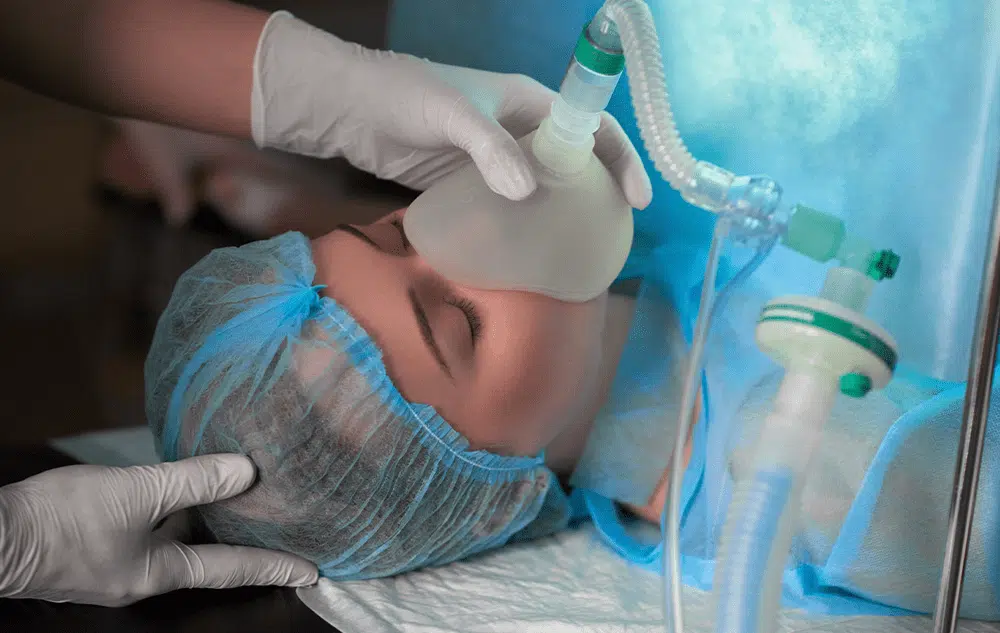
Return to Regular Activities
Returning to regular activities after any obesity surgery in Turkey is an important milestone in the recovery process.
Each individual’s recovery progress and overall health condition play a significant role in determining when they can gradually resume their normal routine.
Gradual Resumption of Daily Activities
- After surgery, it is essential to start slowly and gradually increase activity levels over time. The body needs sufficient rest and time to heal before engaging in more strenuous physical tasks. To ensure a smooth recovery, your healthcare team guide you on when it is safe to resume specific activities based on your progress. Pushing yourself too hard or too soon can hinder the recovery process and potentially lead to complications.
Discussing Limitations or Modifications Required for Certain Physical Activities
- Some exercises may need to be avoided temporarily, others can be modified according to your comfort level. For instance, high-impact exercises such as running or heavy weightlifting might be restricted during the initial stages of recovery due to potential strain on the surgical area. However, low-impact exercises like walking can be highly beneficial during this time.
Importance of Following Medical Advice Regarding Exercise Intensity and Duration
- By following medical advice regarding exercise intensity and duration, you can optimize your recovery process without compromising your overall well-being. Gradually increasing exercise intensity over time helps prevent complications while allowing your body adequate time for healing. Remember, everyone’s recovery journey is unique, and what works for one person may not be suitable for another.
Addressing Concerns about Returning to Work or Other Responsibilities
- The timing for returning to work largely depends on the individual’s progress and the nature of their job. Sedentary desk jobs may allow for an earlier return compared to physically demanding occupations that require heavy lifting or prolonged standing. It is essential to consult with your healthcare provider and discuss any concerns you may have regarding resuming work or other responsibilities.
Importance of Taking Vitamins and Supplements
Potential Nutrient Deficiencies after Gastric Sleeve Surgery
After gastric sleeve surgery alters the digestive system, the smaller stomach pouch restricts food intake, reducing the amount of vitamins and minerals absorbed by the body. As a result, patients may experience deficiencies in essential nutrients such as iron, protein, and certain vitamins.
Iron deficiency is a common concern after gastric sleeve surgery. Iron plays a crucial role in transporting oxygen throughout the body and maintaining healthy red blood cells.
Without adequate iron levels, patients may experience fatigue, weakness, and even anemia. To combat this deficiency, it is recommended to take iron supplements as prescribed by your healthcare provider.
Protein deficiency is another potential issue post-surgery since the reduced stomach size limits protein intake. Protein is vital for tissue repair and muscle growth, which are essential during the recovery process.
To ensure sufficient protein intake, patients should consider incorporating protein-rich foods into their diet or using protein supplements recommended by their healthcare provider.
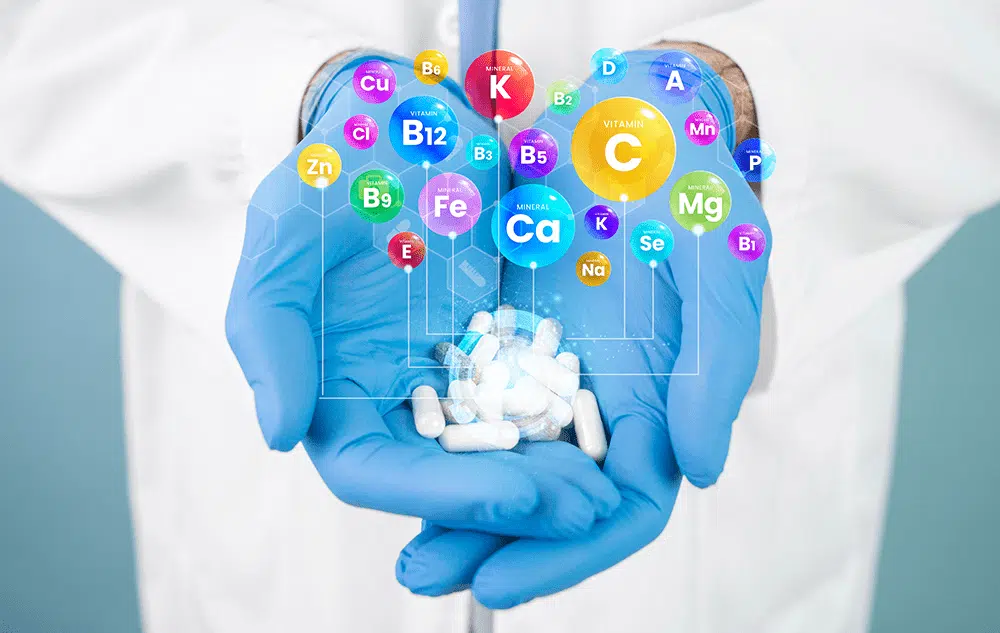
Recommended Vitamins and Supplements for Recovery
To support your recovery after gastric sleeve surgery, it’s crucial to maintain proper nutrition through vitamins and supplements. While each individual’s needs may vary based on factors such as age and overall health condition, there are some commonly recommended options:
- Multivitamins: A high-quality multivitamin specifically formulated for bariatric patients can provide a broad range of essential vitamins and minerals.
- Calcium: Gastric sleeve surgery reduces calcium absorption capacity; therefore, calcium citrate supplements are often suggested to prevent bone loss.
- Vitamin B12: This vitamin is important for nerve function and red blood cell production. Due to reduced stomach acid production after surgery, B12 supplementation is typically required.
- Vitamin D: Essential for bone health, vitamin D deficiency is common among bariatric patients. Supplementation may be necessary to maintain optimal levels.
- Iron: As mentioned earlier, iron deficiency is a potential concern after gastric sleeve surgery. Iron supplements can help prevent anemia and support overall well-being.
Regular Blood Tests for Monitoring Nutrient Levels
To ensure proper recovery and identify any nutrient deficiencies, regular blood tests are essential after gastric sleeve surgery.
These tests allow healthcare professionals to monitor your nutrient levels and adjust your supplement regimen accordingly. By regularly checking key markers such as iron, protein, vitamin B12, and vitamin D levels, they can address any deficiencies promptly.
These blood tests serve as valuable tools in tracking your progress post-surgery. They provide insights into how well your body is absorbing nutrients and whether adjustments need to be made to optimize your recovery process.
Adhering to Prescribed Supplement Regimens
Taking vitamins and supplements consistently as prescribed by your healthcare provider is vital for a successful recovery from gastric sleeve surgery.
It’s easy to overlook the importance of these supplements once you start feeling better or if you experience no immediate symptoms of nutrient deficiencies.
However, staying committed to the recommended supplement regimen helps prevent long-term complications and supports overall health.
Set reminders or establish a routine that makes it easier for you to remember to take your supplements daily. Consider organizing them in pill organizers or using smartphone apps that send alerts at designated times throughout the day.
Speak with Board-Certified Surgeons!

Psychological effects and support during gastric sleeve recovery
Recovering from gastric sleeve surgery can be a physically demanding process, but it’s important to recognize that the psychological impact of this procedure should not be overlooked. Here are some common psychological effects and the importance of support during the recovery process:
| Emotional Changes | Patients may experience a range of emotions, including excitement, anxiety, and even sadness, as they navigate the recovery journey. |
| Body Image and Self-esteem | Gastric sleeve surgery can improve body image due to weight loss, However, some might struggle with body image issues, especially if they encounter loose skin or have unrealistic expectations. |
| Fear of Regaining Weight | There may be fears of regaining weight or not achieving the desired results, leading to anxiety and stress. Patients should focus on long-term lifestyle changes rather than short-term results. |
| Lifestyle Changes | Adopting new eating habits, making lifestyle changes, and developing a healthier relationship with food can be overwhelming. |
| Support System | A strong support system is critical during the recovery period. Family, friends, and support groups can offer emotional support and understanding, helping patients navigate the psychological challenges. |
| Mental Health Counseling | Seek professional counseling for emotional guidance. Counseling can help cope with emotional challenges, set realistic goals, and develop healthy coping mechanisms. |
| Focus on Non-Scale Victories | Encouraging patients to focus on non-scale victories, such as increased energy, improved mobility, and overall well-being, can be empowering and boost their motivation. |
| Mindful Eating | Practicing mindful eating and being aware of emotional triggers can help patients develop a healthier relationship with food and prevent emotional eating. |
| Setting Realistic Expectations | Patients need to understand that everyone’s journey is different, and progress may vary. They should set achievable goals and recognize small milestones. |
Transitioning Back into Work Routine after Gastric Sleeve Surgery
Returning to work after gastric sleeve surgery is an important milestone in your recovery journey. It signifies progress in your healing process and getting back to a sense of normalcy in your daily life.
However, it’s crucial to make this transition gradually and ensure that you prioritize your health during this time.
Here are some tips for transitioning back into your work routine after gastric sleeve surgery:
- Communicate with your employer: Inform your employer about the surgery and any necessary accommodations you may need during the initial phase of returning to work. This could include reduced hours, modified tasks, or temporary adjustments to your workstation.
- Take it slow: Ease yourself back into work by starting with shorter shifts or part-time hours initially. As you regain strength and energy, gradually increase your workload until you’re able to resume full-time work comfortably.
- Plan breaks: Schedule regular breaks throughout the day to rest and recharge. Listen to your body’s signals and take breaks whenever needed. This will help prevent fatigue and ensure that you’re able to perform at your best.
- Modify physical activities: If your job involves physical movements or strenuous activities, discuss with your healthcare team about any limitations or modifications required during the recovery period. They can guide how to safely perform these tasks without compromising healing.
- Seek support from colleagues: Let trusted coworkers know about your surgery so they can offer assistance if needed. Having a supportive network at work can make the transition smoother and alleviate any concerns you may have about resuming certain responsibilities.
Successful recovery after gastric sleeve surgery
One significant milestone is the initial weight loss experienced after the gastric sleeve surgery. Many patients see a noticeable reduction in their excess weight within the first few weeks or months following the procedure.
In addition to weight loss, gastric sleeve surgery often leads to significant improvements in obesity-related health conditions such as diabetes, high blood pressure, and sleep apnea.
It’s crucial to maintain a positive mindset throughout the entire process to ensure successful outcomes. The success of gastric sleeve surgery goes beyond just numbers on a scale.
However, it’s essential to understand that it is just the beginning of a lifelong commitment to maintaining a healthy lifestyle. Long-term follow-up care plays a crucial role in ensuring sustained success.

Conclusion
Gastric sleeve surgery is not just a one-time fix for weight loss; it marks the beginning of a lifelong journey toward improved health and well-being.
Making sustainable lifestyle changes, especially in terms of dietary habits, is crucial for long-term success after the surgery.
In conclusion, the gastric sleeve surgery recovery timeline is a crucial period that requires patience, commitment, and adherence to medical guidelines.
Throughout the process, patients can expect a gradual transition from liquids to pureed foods, proper pain management, and careful monitoring of incision healing.
Following a balanced diet, staying hydrated, and incorporating light physical activity contribute to a successful recovery.
Regular follow-up appointments with the medical team play a vital role in ensuring a smooth journey towards improved health and long-term weight loss. With dedication and support, gastric sleeve surgery can lead to a transformed and healthier life.

FAQs
The recovery timeline varies for each individual but typically spans around 4-6 weeks until most regular activities can be resumed. However, complete recovery may take several months.
Some discomfort is expected after surgery; however, pain can be managed with prescribed medications provided by your surgeon. It should gradually subside as your body heals.
Light exercises like walking are encouraged during the early stages of recovery. However, always consult with your medical team before starting any exercise regimen to ensure it aligns with your specific situation.
Following surgery, a gradual transition from liquids to pureed foods and eventually solid foods will be recommended. Your medical team will provide a specific diet plan to follow, ensuring proper healing and weight loss.
The time it takes to return to work depends on individual circumstances and the nature of your job. It’s best to consult with your surgeon regarding when you can safely resume work activities.
Alcohol should be avoided during the recovery period as it can irritate the stomach lining and impede healing. Consult with your medical team for guidance on when it may be safe to consume alcohol in moderation.
In some cases, additional procedures such as body contouring surgeries may be considered once weight loss stabilizes. However, this is not always necessary and should be discussed with your medical team based on individual circumstances.
Read more: Obesity Surgery Cost in Turkey
